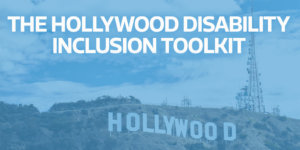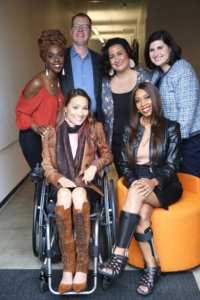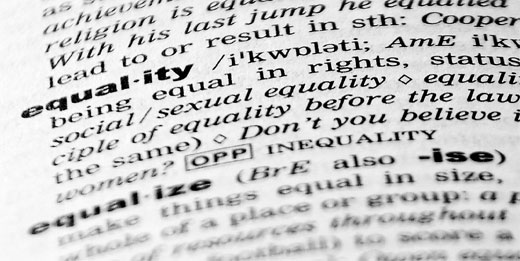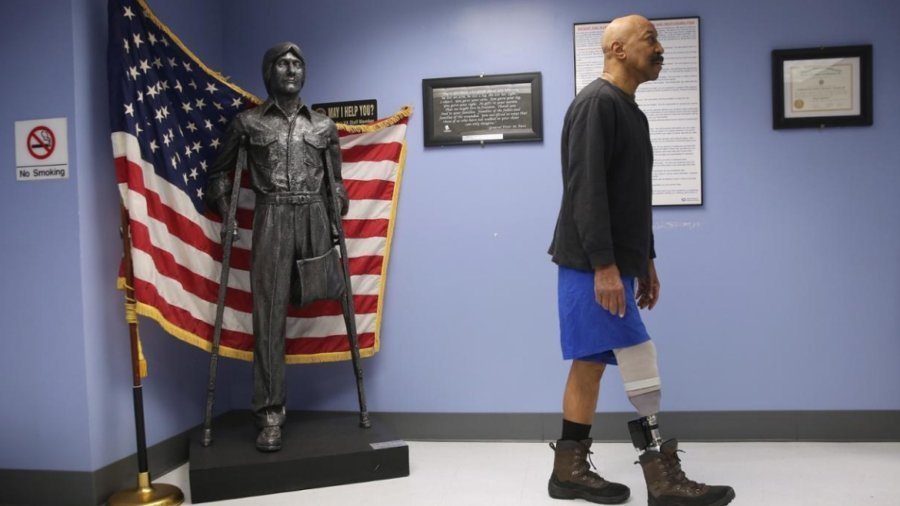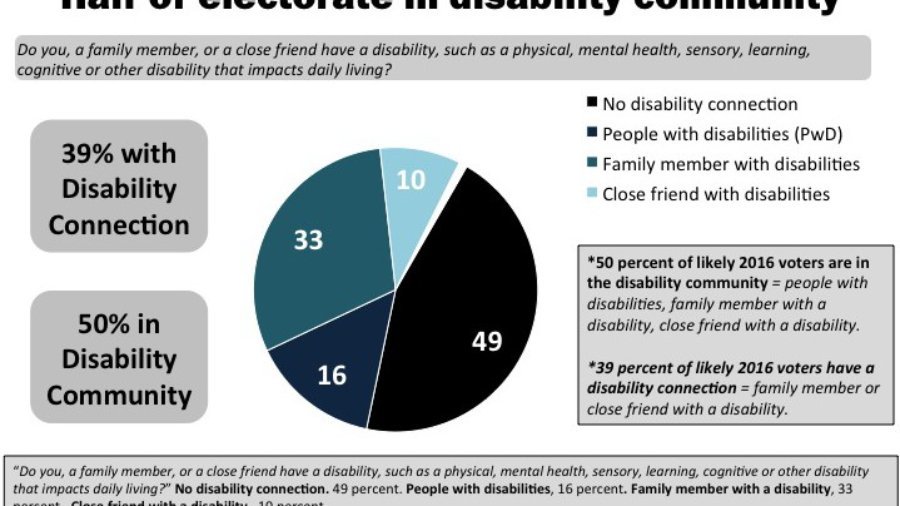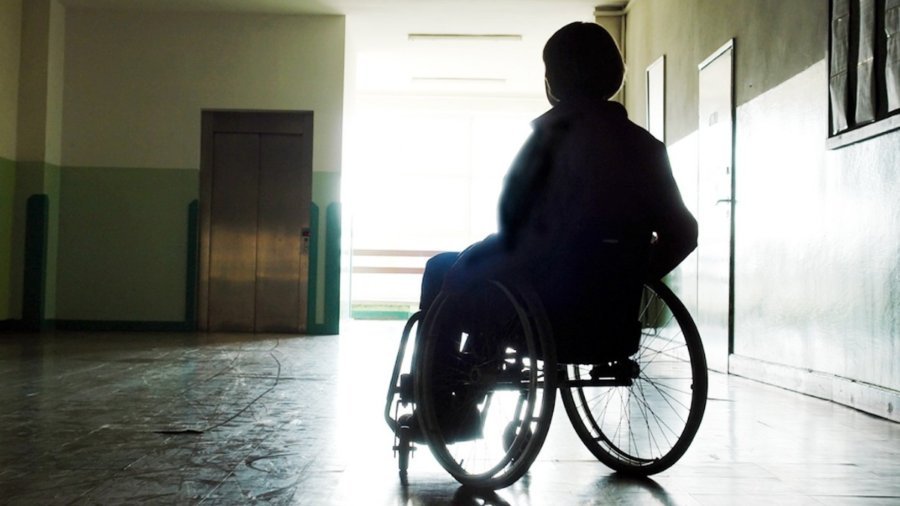Ensuring the inclusion of people with disabilities in faith-based communities.
Faith community inclusion is evolving. The Americans with Disabilities Act (ADA) became effective on July 26, 1990 with the purpose to make sure that people with disabilities have the same rights and opportunities as everyone else. It covers all areas of public life, including jobs, schools, transportation, and all public and private places that are open to the general public.
Religious organizations and entities controlled by religious organizations mostly have no obligations under the ADA. However, as Disability Rights Advocate, the late Rabbi Lynne Landsberg, reminded us, “Despite the legal exemption, the ADA is a moral mandate for faith communities.”
RespectAbility understands and believes in the importance of inclusion in faith-based organizations, so much so that it is one of the pillars of our work. Given the significant role that faith and faith-based organizations play in American life, RespectAbility works for full inclusion in all faith groups.
We believe that faith communities are stronger when they embrace and act upon values of diversity, equity, inclusion, and belonging.
RespectAbility’s faith inclusion programs, listed on this page, provide practical strategies, real-life stories, and so much more for any faith community to use.
RespectAbility’s Senior Director of Faith Inclusion and Belonging, Shelly Christensen, has longstanding experience in Jewish and Interfaith Inclusion. “People with disabilities and mental health conditions, and those who love them, want what everyone wants. To feel a sense of belonging.”
Faith Inclusion and Belonging Newsletter
RespectAbility’s Faith Inclusion and Belonging Newsletter lifts up and amplifies the efforts of people with and without disabilities who are working to ensure that disabled people can fully participate in all aspects of faith community life. Do you want to contribute? Please reach out to Ben Bond at Ben.Bond@RespectAbility.org.
Spiritual Dimensions of Trauma, Healing, and Resiliency
The American Association on Intellectual and Developmental Disabilities (AAIDD) Religion and Spirituality Interest Network and RespectAbility present a 4-part series on trauma, healing, and resilience in the lives of people with intellectual and developmental disabilities (IDD).
Participants will learn how people can heal from traumatic life events and generational trauma created by systems of oppression, how spirituality and community engagement can foster recovery and resilience, and ways service providers and faith communities can provide training and support to their staff. Presenters will highlight practical strategies to support people with IDD who experience trauma through spirituality, community, and the arts.
Jewish Disability Awareness, Acceptance & Inclusion Month
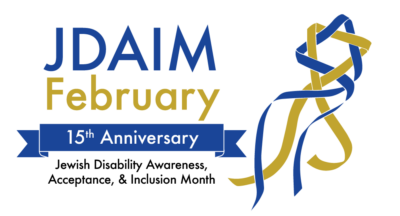 The mission of Jewish Disability Awareness, Acceptance, and Inclusion Month is to unite Jewish communities worldwide to raise awareness and champion the rights of all Jews to be accepted and included in all aspects of Jewish and community life like anyone else. This directly connects to RespectAbility’s mission statement and that of the Faith Inclusion & Belonging Department: To fight stigmas and advance opportunities so people with disabilities can fully participate in all aspects of faith community life.
The mission of Jewish Disability Awareness, Acceptance, and Inclusion Month is to unite Jewish communities worldwide to raise awareness and champion the rights of all Jews to be accepted and included in all aspects of Jewish and community life like anyone else. This directly connects to RespectAbility’s mission statement and that of the Faith Inclusion & Belonging Department: To fight stigmas and advance opportunities so people with disabilities can fully participate in all aspects of faith community life.
Inclusive Congregations Guide
 RespectAbility’s Inclusive Congregations Guide provides ways to make your in-person and virtual services, gatherings, and events as inclusive and accessible as possible. We are proud to offer this guide to congregations of all faith traditions.
RespectAbility’s Inclusive Congregations Guide provides ways to make your in-person and virtual services, gatherings, and events as inclusive and accessible as possible. We are proud to offer this guide to congregations of all faith traditions.
- Introduction
- The Americans with Disabilities Act (ADA) in Faith Communities
- Diversity, Equity, Inclusion, Access = Belonging
- Before Events and Services
- General Accessibility Guidelines
- In-Person Events and Services
- Virtual Events and Services
- About The Authors
5784 High Holiday Guide to Inclusive Congregations
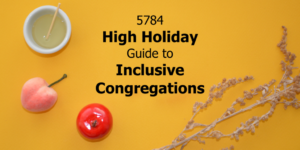 The High Holiday Guide to Inclusive Congregations offers synagogues and Jewish organizations many practical tips for accessibility in all the services, events, and programs you offer.
The High Holiday Guide to Inclusive Congregations offers synagogues and Jewish organizations many practical tips for accessibility in all the services, events, and programs you offer.
- RespectAbility 10 Year Anniversary
- Shana Tova!
- The Americans with Disabilities Act (ADA) in Faith Communities
- Diversity, Equity, Inclusion, Accessibility = Belonging
- Before The High Holidays
- General Accessibility Guidelines
- In-Person Events/Services
- Outside The Synagogue
- Virtual Events/Services
- About The Authors
Pathways to Belonging: Supporting the Spiritual and Faith-Community Interests of People with Intellectual and Developmental Disabilities
The Religion and Spirituality Interest Network of the American Association on Intellectual and Developmental Disabilities (AAIDD) and RespectAbility, a diverse, disability-led nonprofit that works to create systemic change in how society views and values people with disabilities, launched a new four-part webinar series. In collaboration with AAIDD’s Community and Technology Interest Networks, the series explored:
- Home and Community Based Services (HCBS) language to support the community engagement process of supporting people to belong to their chosen spiritual or faith community.
- Why spiritual health and wellness is important to many people with intellectual and developmental disabilities (I/DD).
- Practical considerations including questions to ask to learn about an individual’s spiritual health and wellness needs and preferences to find a spiritual home, how to advocate for inclusion and belonging, and what to expect when you accompany someone to a house of worship or other faith-based entity.
- How technology can support meaningful participation, and the implications of technology for belonging.
Bible Study with St. Luke’s Episcopal Church + RespectAbility
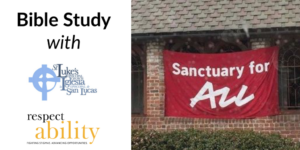 Here at RespectAbility, we hope to destigmatize disability in all realms of life. In the Faith Inclusion and Belonging department particularly, our work is in making all houses of worship across all faiths places where disabled people belong and thrive. RespectAbility, in partnership with St. Luke’s Episcopal Church in Long Beach, California, hosted a 5-session, weekly online study on disability in Jewish and Christian scripture.
Here at RespectAbility, we hope to destigmatize disability in all realms of life. In the Faith Inclusion and Belonging department particularly, our work is in making all houses of worship across all faiths places where disabled people belong and thrive. RespectAbility, in partnership with St. Luke’s Episcopal Church in Long Beach, California, hosted a 5-session, weekly online study on disability in Jewish and Christian scripture.
Sessions were taught on Zoom by David Tabb Stewart, Professor of Religious Studies at California State University, Long Beach. In these interactive sessions, we approached scripture with curiosity, looking at what the bible says and doesn’t say about disability, and how these perspectives inform our theology today. We critically examined theologies that lend themselves to both the medical and social models of disability and looked for ways we can move away harmful ideas and practices into spaces that are welcoming and life-giving.
Disability Training and Consulting Bureau: Faith Inclusion Trainers
Faith communities are becoming steadily more aware of, and eager for, contributions of people with disabilities. As such, trainers in our Disability Training and Consulting Bureau are available to speak at conferences, churches, synagogues, and organizations.
What Do You Pray For?
 “What Do You Pray For?” is a series of short interviews of Jews with disabilities who tell viewers in their own words what they pray for and what prayer means to them. The project features Jews with various disabilities from across the United States, with a myriad of different connections to their Jewish identity. Watch the videos and read the transcripts at the links below.
“What Do You Pray For?” is a series of short interviews of Jews with disabilities who tell viewers in their own words what they pray for and what prayer means to them. The project features Jews with various disabilities from across the United States, with a myriad of different connections to their Jewish identity. Watch the videos and read the transcripts at the links below.
- Erika Abbott: Writer / Award-Winning Poet
- Ariella Barker: Attorney, Policy Advisor and Communications Specialist
- Justin Borses: Former College Student and employee at Moorpark College
- Lee Chernotsky: Founder and CEO, ROSIES Foundation
- Samantha Elisofon: Award-Winning Actress (“Keep the Change”) and member of EPIC Players, A Neuro-inclusive Theater Company in Brooklyn
- Alex Howard: Entertainment Media and Jewish Inclusion Fellow in RespectAbility’s National Leadership Program
- Matan Koch: Senior Policy Advisor at RespectAbility
- Amy Rosenfeld-Kass: Teacher from The Saul and Carole Zabar Nursery School at the JCC
- Ben Rosloff: Communications and Jewish Inclusion Fellow in RespectAbility’s National Leadership Program
- Rachel Rothstein: 4th year Rabbinical Student at the Hebrew Union College Jewish Institute of Religion
- Barry Shore: Ambassador of Joy and Successful Serial Entrepreneur
- Ari Sloan: Member of EPIC Players who is living with Autism
- Rabbi Lauren Tuchman: Rabbi, Public Speaker, Spiritual Leader and Educator
- Blair Webb: System Change Youth Advocate at MEET THE BIZ and former Jewish Inclusion Fellow in RespectAbility’s National Leadership Program
- Aaron Wolf: Co-founder of Howling Wolf Productions and Award-winning Actor, Director, Speaker, and Activist
Multifaith Perspectives
- Sojourners: My Disabled Body Proclaims the Gospel
- Sojourners: Covid Exposed Christian Ableism. What Happens When Churches Reopen?
- RespectAbility: Revisiting “Please Rise”
- Beyond the Hijab: Re-thinking Disability in Islam
- Cosmopolitan: The Pandemic Tried to Break Me, but I Know My Black Disabled Life Is Worthy
- Georgetown Berkley Center: The New Normal? A Buddhist Perspective on Disability and COVID-19
Do you know other people or nonprofit organizations that should be included as a resource?
Contact our Senior Communications Associate, Eric Ascher, at EricA@RespectAbility.org.
More Resources You Can Use
- Webinars
- Disability Training and Consulting Bureau
- African Americans
- Asian Americans and Pacific Islanders
- Communications, Marketing, and Advertising
- COVID-19
- Education
- Employers
- Ending the School-to-Prison Pipeline
- Entertainment Professionals
- Equity and Inclusion
- Hispanic and Latinx
- Inclusive Philanthropy
- Job Seekers/Entrepreneurship
- LGBTQ+
- Policy Makers
- Sex Education
- Spinal Cord Injuries
- Statistics
- Veterans
- Women

